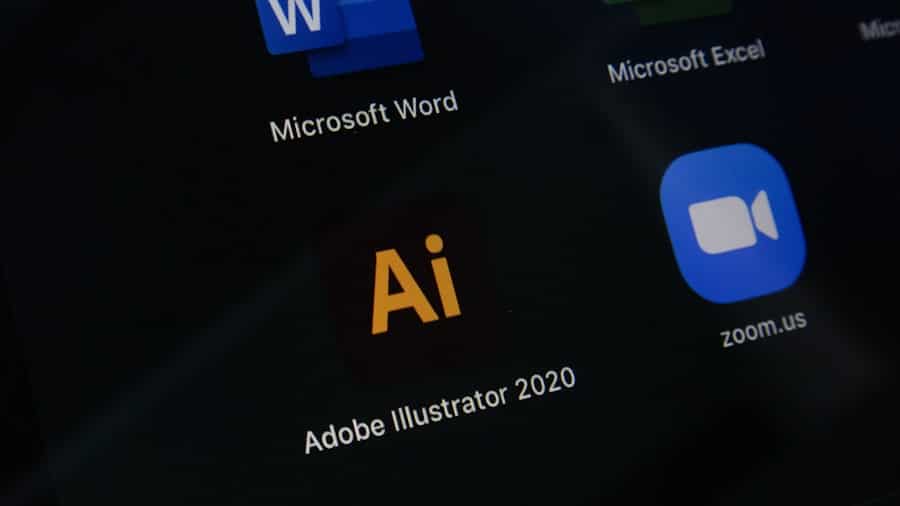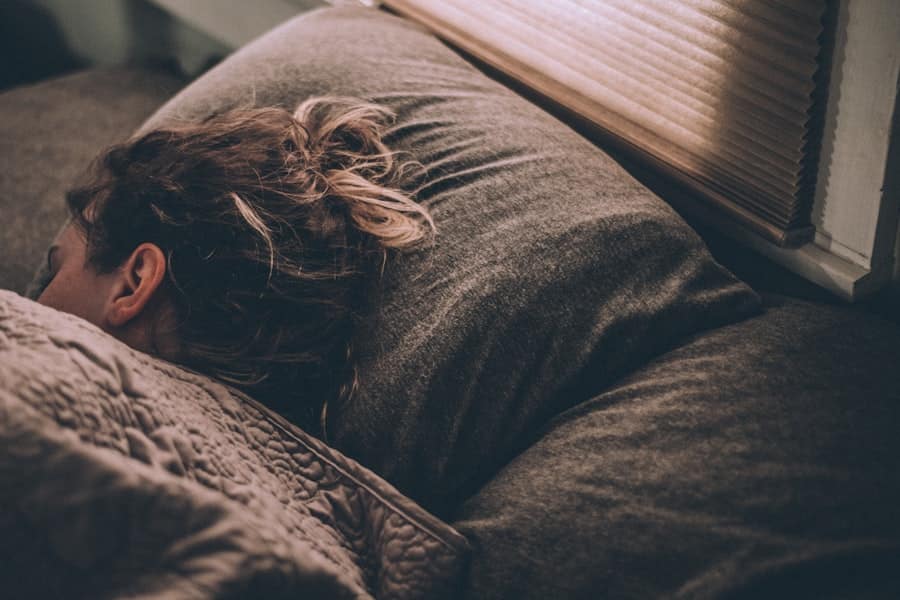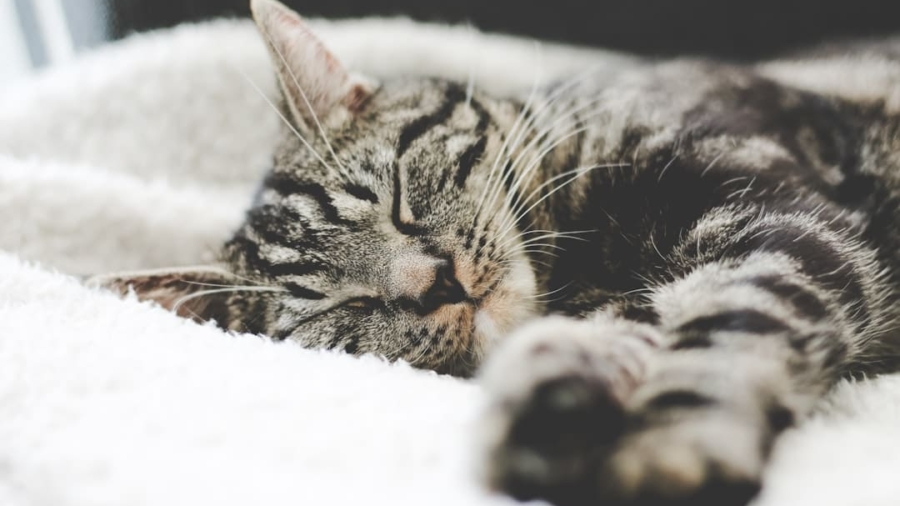In recent years, the growing awareness of the importance of sleep for overall health and well-being has led to a surge in the popularity of wearable sleep tracking devices. These gadgets, which can be worn on the wrist, head, or even as part of clothing, are designed to monitor various physiological parameters during sleep. By collecting data on heart rate, movement, and even environmental factors like temperature and light, these devices provide users with insights into their sleep patterns and quality.
The rise of wearable technology has made it easier than ever for individuals to take control of their sleep health, leading to a more informed approach to improving sleep quality. Wearable sleep trackers have evolved significantly from their early iterations, which primarily focused on basic metrics such as total sleep time and wakefulness. Today’s devices leverage advanced sensors and algorithms to provide a comprehensive analysis of sleep stages, including light, deep, and REM sleep.
This detailed breakdown allows users to understand not just how long they sleep, but also the quality of that sleep. As technology continues to advance, the integration of artificial intelligence (AI) into these devices is transforming the landscape of sleep tracking, offering unprecedented levels of personalization and accuracy.
Key Takeaways
- Wearable sleep tracking devices use artificial intelligence to monitor and analyze sleep patterns.
- AI-powered sleep tracking devices offer advantages such as personalized insights and recommendations for improving sleep quality.
- AI improves the accuracy of sleep tracking data by analyzing multiple factors and providing more detailed information.
- Challenges of AI in sleep tracking include privacy concerns and the need for continuous improvement in algorithms.
- Future developments in AI-powered sleep tracking may include more advanced sensors and integration with other health monitoring devices.
The Role of Artificial Intelligence in Sleep Tracking
Uncovering Hidden Patterns
By leveraging machine learning algorithms, these devices can analyze vast amounts of data collected from users over time, identifying patterns and trends that would be difficult for humans to discern.
Personalized Recommendations
AI can recognize how various factors, such as stress levels, physical activity, and dietary choices, affect an individual’s sleep quality, allowing for more tailored recommendations that can lead to improved sleep hygiene. Moreover, AI algorithms can adapt to individual users, learning from their unique sleep patterns and behaviors.
Dynamic Interaction for Better Sleep Health
This personalization is crucial because sleep is not a one-size-fits-all experience; what works for one person may not work for another. By continuously refining their understanding of a user’s sleep habits, AI-powered devices can provide increasingly accurate predictions and suggestions over time, fostering a more engaged approach to managing sleep health.
Advantages of AI-Powered Sleep Tracking Devices

The advantages of AI-powered sleep tracking devices extend beyond mere data collection; they offer actionable insights that can lead to tangible improvements in sleep quality. One significant benefit is the ability to provide personalized feedback based on an individual’s specific sleep patterns. For example, if a user consistently experiences disruptions during REM sleep, the device can suggest lifestyle changes or relaxation techniques tailored to enhance that particular stage of sleep.
Additionally, AI can facilitate proactive health management by alerting users to potential issues before they escalate. For instance, if a device detects irregularities in heart rate variability during sleep—a potential indicator of stress or anxiety—it can prompt the user to engage in mindfulness practices or consult a healthcare professional. This proactive approach empowers users to take charge of their health rather than merely reacting to problems as they arise.
How AI Improves the Accuracy of Sleep Tracking Data
The accuracy of sleep tracking data is paramount for users seeking to improve their sleep quality. Traditional methods of tracking sleep often relied on self-reported data or basic motion sensors, which could lead to inaccuracies in determining sleep stages. However, AI enhances this accuracy by integrating multiple data sources and employing sophisticated algorithms that analyze this information in real-time.
For instance, many AI-powered devices utilize heart rate variability (HRV) data alongside movement patterns to provide a more nuanced understanding of sleep states. By correlating these metrics with known physiological responses during different stages of sleep, AI can more accurately classify whether a user is in light, deep, or REM sleep. Furthermore, advancements in sensor technology allow for continuous monitoring without significant discomfort, ensuring that users receive reliable data throughout the night.
Challenges and Limitations of AI in Sleep Tracking
Despite the numerous advantages offered by AI in sleep tracking, several challenges and limitations persist. One significant concern is the variability in individual responses to different factors affecting sleep. While AI algorithms can identify general trends across populations, they may struggle to account for unique biological or environmental influences on an individual’s sleep patterns.
This limitation can lead to recommendations that may not be suitable for everyone. Another challenge lies in the accuracy of the underlying sensors used in wearable devices. While advancements have been made in sensor technology, inaccuracies can still arise from factors such as improper placement or external interferences like noise and light pollution.
Additionally, the reliance on algorithms means that users may place undue trust in the device’s recommendations without considering their own intuition or experiences regarding their sleep health.
Future Developments in AI-Powered Sleep Tracking

The future of AI-powered sleep tracking holds exciting possibilities as technology continues to evolve. One area poised for growth is the integration of biometric data from other health metrics, such as stress levels or metabolic rates. By combining this information with sleep data, devices could offer a more holistic view of an individual’s health and well-being.
For example, if a user experiences elevated stress levels during the day, the device could suggest specific relaxation techniques before bedtime to mitigate its impact on sleep quality. Moreover, advancements in natural language processing (NLP) could enable more intuitive interactions between users and their devices. Imagine being able to ask your wearable device about your sleep quality or receive verbal feedback on how to improve it based on your recent habits.
Such developments would not only enhance user engagement but also make it easier for individuals to understand and act upon their sleep data.
Considerations for Choosing an AI-Powered Sleep Tracking Device
When selecting an AI-powered sleep tracking device, several factors should be taken into account to ensure it meets individual needs effectively. First and foremost is the accuracy and reliability of the device’s sensors. Users should look for devices that have been validated through clinical studies or have received positive reviews from reputable sources regarding their performance in tracking various sleep metrics.
Another important consideration is the user interface and experience. A device that provides clear visualizations and easy-to-understand reports will be more beneficial than one that presents data in a confusing manner. Additionally, compatibility with other health apps or devices can enhance the overall experience by allowing users to integrate their sleep data with other aspects of their health management.
Conclusion and Recommendations for Using AI-Enhanced Sleep Tracking Devices
As individuals increasingly turn to technology for insights into their health, AI-enhanced sleep tracking devices represent a significant advancement in understanding and improving sleep quality. By leveraging sophisticated algorithms and personalized feedback mechanisms, these devices empower users to take proactive steps toward better sleep hygiene. However, it is essential for users to remain critical consumers of this technology—recognizing its limitations while also embracing its potential benefits.
For those considering an AI-powered sleep tracker, it is advisable to conduct thorough research on available options and select a device that aligns with personal preferences and lifestyle needs. Engaging with the data provided by these devices can lead to meaningful changes in daily routines and overall well-being. Ultimately, while technology can offer valuable insights into our sleeping habits, it is our responsibility to interpret this information thoughtfully and make informed decisions about our health.
In a related article discussing the advancements in technology, How Smartwatches Are Enhancing Connectivity explores the ways in which wearable devices are revolutionizing the way we stay connected and track our health. This article delves into the various features of smartwatches that allow for seamless integration with our daily lives, highlighting the potential for improved accuracy in health tracking and monitoring.
FAQs
What is AI?
AI, or artificial intelligence, refers to the simulation of human intelligence in machines that are programmed to think and learn like humans. It is used to improve the accuracy and efficiency of various tasks and processes.
What are wearable sleep trackers?
Wearable sleep trackers are devices that are worn on the body to monitor and track sleep patterns. These devices use various sensors to collect data such as movement, heart rate, and breathing patterns to provide insights into the quality and duration of sleep.
How does AI enhance the accuracy of wearable sleep tracking?
AI enhances the accuracy of wearable sleep tracking by analyzing the data collected from the sensors in real-time and identifying patterns and trends that may indicate different sleep stages. AI algorithms can also learn and adapt to individual sleep patterns, leading to more personalized and accurate sleep tracking.
What are the benefits of using AI in wearable sleep tracking?
The benefits of using AI in wearable sleep tracking include improved accuracy in identifying sleep stages, personalized insights into sleep patterns, and the ability to provide actionable recommendations for improving sleep quality. AI also enables continuous learning and improvement of sleep tracking algorithms over time.
Are there any limitations to AI-enhanced wearable sleep tracking?
While AI-enhanced wearable sleep tracking offers significant improvements in accuracy, there are still limitations to consider. Factors such as device placement, individual differences in sleep patterns, and environmental influences can impact the accuracy of sleep tracking, and AI algorithms may not always be able to account for these variables.

